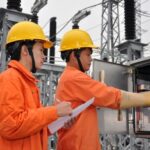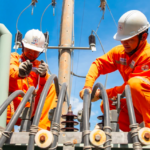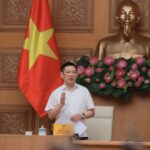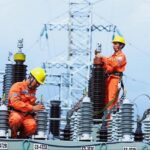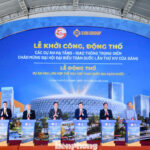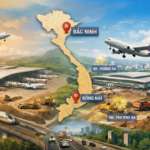With the scorching heat and soaring electricity prices, many households are seeking alternative cooling solutions to air conditioners to save costs. Evaporative coolers and air coolers are two popular choices, marketed for their ability to cool effectively while being energy efficient. But which one is more economical for everyday use?
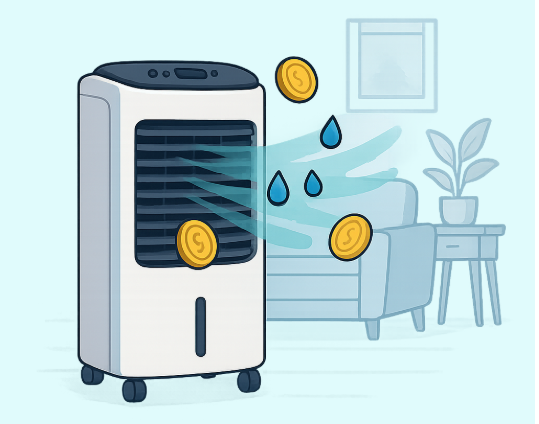
1. Evaporative Coolers: Cheap and Low Power Consumption
Evaporative coolers work on the principle of evaporation: water is pumped onto a cooling pad, and the passing air is cooled more effectively than with a regular fan.
Power consumption: 80–120W, equivalent to an incandescent light bulb.
Operating cost: If run continuously for 8 hours/day, an evaporative cooler consumes only about 0.6–1 kWh, which translates to 2,000–3,000 VND in electricity costs.
Pros: Inexpensive (1–3 million VND), easy to use, quickly cools small spaces, and increases humidity.
Cons: Ineffective in large or enclosed spaces; high humidity can cause discomfort, damage electronics, and affect wooden furniture.
2. Air Coolers: Better Cooling but Higher Electricity Consumption
Air coolers (also known as air conditioners) have a similar structure and principle to evaporative coolers but are more powerful and usually come with dust filters and thicker cooling pads.
Power consumption: 150–200W, double that of evaporative coolers.
Operating cost: Running for 8 hours/day consumes about 1.2–1.6 kWh, costing around 4,000–6,000 VND.
Pros: Stronger cooling capacity, suitable for large spaces (20–30 m²), air purification mode, and more pleasant cool breeze.
Cons: More expensive (3–6 million VND), noisy, water-intensive, and requires regular cleaning to prevent bacteria and unpleasant odors.
3. Overall Comparison on Energy Savings
Power Consumption: Evaporative coolers save about 30–40% of electricity compared to air coolers. Cooling Efficiency: Air coolers are advantageous for large spaces or families, but operating costs are higher.
Durability and Maintenance: Both require regular cleaning of the cooling pads, but air coolers are more complex.
Compared to air conditioners (with a power rating of 800–1,500W), both options offer significant energy savings, consuming only 1/5–1/10 of the electricity. However, the level of coolness cannot be compared to that of air conditioners in enclosed spaces.
4. Which Option Is More Suitable?
Small spaces, individual users, or small families: Evaporative coolers are economical and sufficient for basic cooling needs.
Large spaces, cooling needs for multiple people: Air coolers are a better fit, despite the higher electricity cost, as they are still much cheaper than air conditioners.
Users prioritizing absolute energy savings: Evaporative coolers have the advantage.
Users seeking a balance between comfort and cost: Air coolers offer a reasonable compromise.
In terms of energy savings alone, evaporative coolers have a clear advantage with their significantly lower power consumption. However, when it comes to cooling efficiency and serving large spaces, air coolers are more suitable. The choice between the two should be based on actual usage needs, room size, and family habits.
With soaring electricity prices, considering evaporative coolers and air coolers can help consumers find an economical and effective cooling solution for the summer heat.
Putting EVN’s 44,000 Billion Dong Loss into Electricity Prices: Approve Only Reasonable Costs
Regarding the proposal to include a loss of over VND 44,000 billion in the average electricity selling price, experts argue that it is necessary to request a detailed report from EVN on the cost components that make up this loss and only approve the allocation of reasonable expenses.
The Vice Premier’s Directive on Electricity and Fuel Price Regulation
“The esteemed Vice Prime Minister, Ho Duc Phoc, emphasizes the critical importance of effective price management and governance as a pivotal strategy to propel economic growth. Among the key areas of focus, he highlights the management of electricity and fuel prices, underscoring their impact on the broader economy. This directive serves as a timely reminder of the government’s commitment to fostering a stable and prosperous Vietnam.”
The Power Sector’s Prominent Policies in 2024
In 2024, the power industry witnessed a series of events and policy changes. Notably, EVN was authorized to increase electricity prices on a quarterly basis, the amended Electricity Law was passed, and regulations on renewable energy were introduced. These developments marked significant shifts in the industry’s landscape over the past year.

